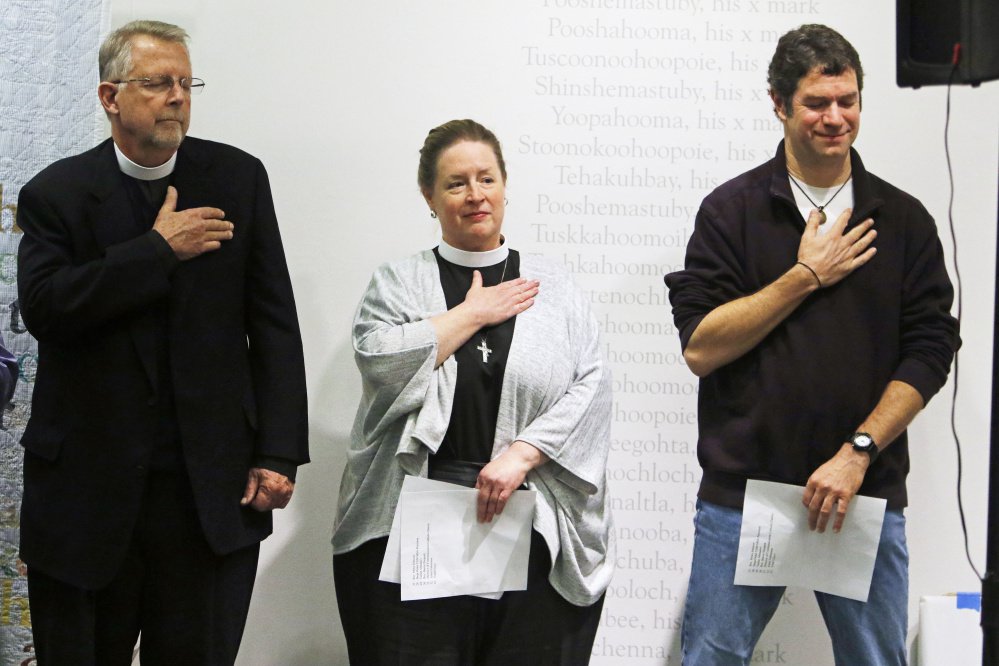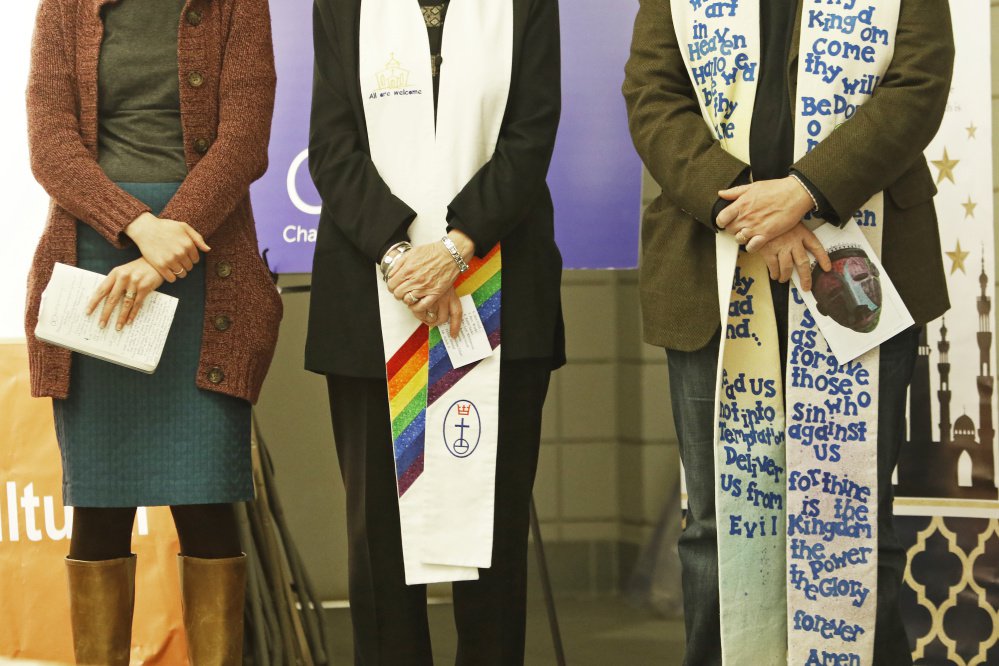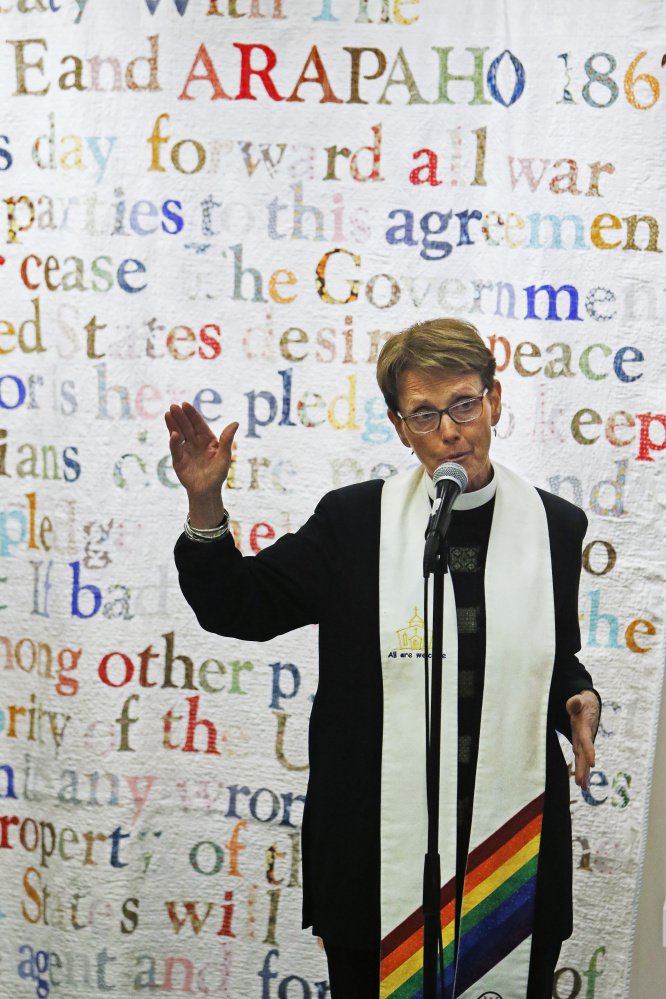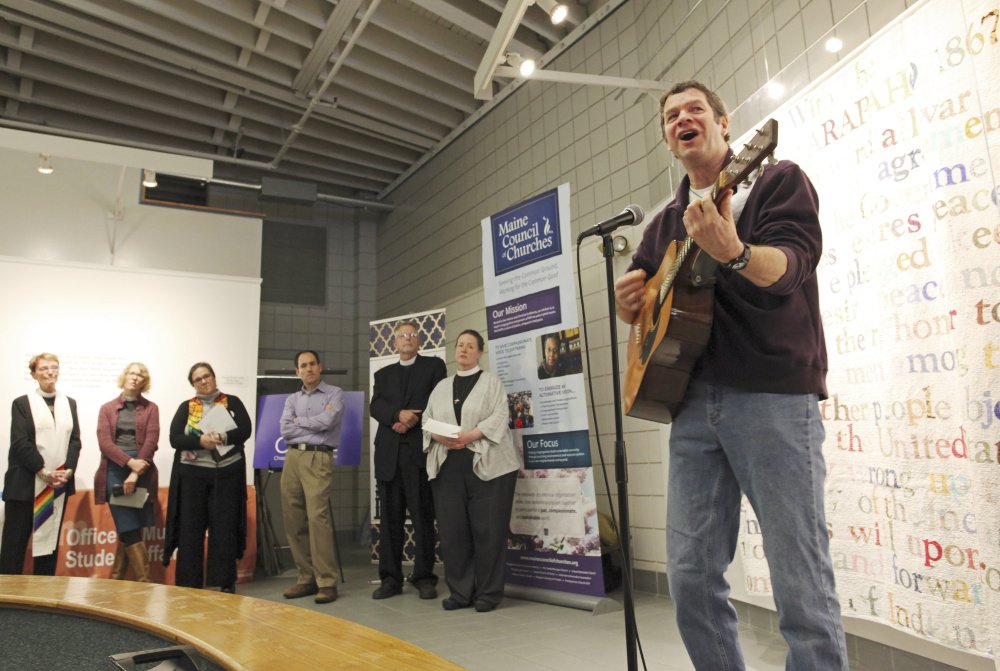About a month after graffiti considered to be anti-Muslim was found scrawled in the student government offices of the University of Southern Maine, representatives of more than a dozen religious faiths gathered Wednesday to call for greater inclusiveness and less mistrust in the campus and wider community.
“We stand with our neighbors and send a message that we will not stand for discrimination, intolerance and hate,” said Reza Jalali, coordinator of the university’s Office of Multicultural Student Affairs and a Muslim adviser at Bowdoin College in Brunswick.
Jalali, who helped organize the event, which drew about 75 people, said the call for tolerance and acceptance was driven by both the graffiti incident and a divisive national election.
“As a nation, we are at a crossroad,” Jalali said at the event in the USM’s Woodbury Campus Center. The choice is between “building a wall that will separate us and dismantling the wall that surrounds our hearts,” she said. “We can choose to stand together, as we do today, or stand on each other’s necks.”
The Southern Poverty Law Center, which has been tracking reports of possible hate crimes against marginalized groups, reported eight hate incidents in Maine in the 10 days after the election, out of 867 reported nationwide.
In Portland, a woman whose car displayed an anti-Donald Trump sticker reported that her vehicle had its seats slashed and “TRUMP” carved into the dashboard about two weeks after the election, and several Somali residents of Lewiston said they were harassed in the weeks after the vote.
The graffiti at USM, which occurred just a few days before the November election, used the Latin phrase “Deus Vult,” or “God Wills It.” That phrase was used by Christians during the Crusades and more recently has been adopted by some in the so-called alt-right, white supremacist political movement as an anti-Muslim insult.
In the USM case, two student senators resigned and apologized after they said on social media that the graffiti should have been cleaned up but not reported to campus police.
Robert Stein, spokesman for USM, said the student accused of writing the graffiti was identified and the case was handled through the college’s student conduct system. He said that system is confidential and neither the student’s name nor the outcome of the process will be released publicly.
Stein said campus police also forwarded their report to the Cumberland County District Attorney’s Office for review and possible charges. Stein said USM officials haven’t gotten any word from the DA’s office on whether charges will be filed.
Wednesday’s event featured representatives from more than a dozen religions, including Christian, Jewish, Muslim, Buddhist and Sikh.
“We stand here shoulder to shoulder,” said Jane Field, executive director of the Maine Council of Churches. “We say ‘no’ to hatred and racism and bigotry.”
Nearby, a table displayed placards showing how many religions have celebrations near the beginning of winter, from the Christian Christmas and Jewish Hanukkah to Diwali, a festival of lights associated with Hinduism and Sikhism.
The Rev. Lawrence B. Weeks, a rector at both St. Peter’s Episcopal Church and Trinity Episcopal Church in Portland, recalled the Christmas story when, he said, all are called on “to make room in the inn of our lives” for immigrants and other new Americans.
And USM’s president, Glenn Cummings, said Mainers and others shouldn’t be afraid to look for help in dealing with both the challenges facing the country and the personal challenge of being welcoming to all.
“We have to appeal to our higher angels,” he said. “We’re going to need a big universe to help us.”
Correction: This story was revised at 7:49 a.m., Dec. 8, 2016, to state that The Rev. Lawrence B. Weeks is a rector at both St. Peter’s Episcopal Church and Trinity Episcopal Church in Portland. A previous version of this story identified him incorrectly.
Send questions/comments to the editors.







